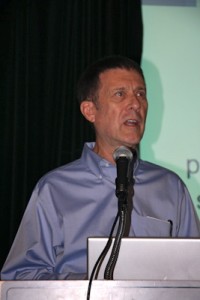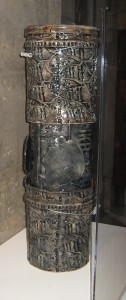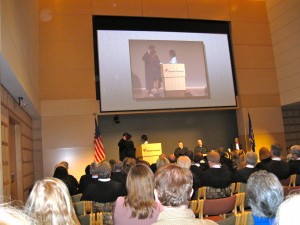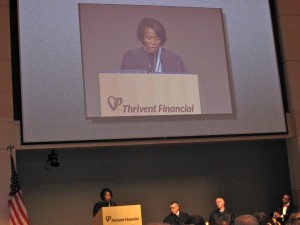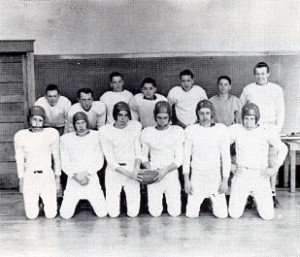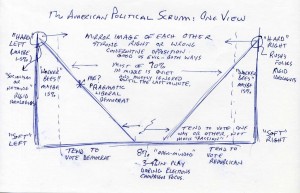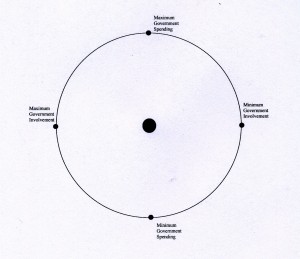#445 – Dick Bernard: A Political Fundraiser
Late yesterday we went to a small gathering of people in St. Paul. It goes by the generic label: “political fundraiser”.
As such things go, this was a small event. The candidate was there: a three term Congressman from southern Minnesota; a Democrat in a district that is probably shaded Red (Republican) historically, and reaches from Wisconsin to South Dakota. The candidate has all of the appropriate credentials to win in November 2012: he’s lifelong midwest; he’s long lived and worked in the district he’s been representing; he’s a career public school teacher and coach; a retired military man (National Guard); family man…in short, he possesses everything that builds what should be a winning image.
There have been no scandals on his watch.
The Republicans have no one yet to oppose him; and are trying to gerrymander his district in mandatory redistricting due to the census, to make it more difficult for him to win in 2012 (redistricting won’t be accomplished till sometime in early February, 2012), etc.
As is typical at such events, roughly half-way through the fundraiser, the Congressman made a few remarks, and then answered a few questions for us.
He noted that as a body, Congress is reviled by the American people: something like 12% approval rating…he also noted that, ironically, it is those same American people who freely elected he and his colleagues. 73% of this same public disapprove of the job of Republicans in the current Congress; 62% disapprove of the job of Democrats in that same Congress.
Poll numbers are the pulse, as it were, and what the people are thinking.
Perhaps polls are also used to manipulate opinions?
The Congressman talked about a poll not long ago in his district showing he was up by 13% over a still hypothetical opponent. Shortly thereafter the Karl Rove operation tossed $800,000 into a political advertising campaign in his district, and the following poll showed him as being in a dead-heat with the same hypothetical: it’s the power of political advertising. Hateful as it is, political propaganda works. And advertising costs money, which is why the Congressman is early on the circuit to raise money for his own campaign.
He talked about the poisonous atmosphere in Washington DC, at the Capitol where he works.
He’s a gregarious fellow, a friendly guy, and he’s no stranger in Congress. The ascent of 94 Tea Party types to Congress in 2010 poisoned further the already tenuous relationship well in the U.S. Congress. These days, he said, it is not uncommon to just say a friendly hello to a colleague in a corridor, and get no response whatsoever. Congressional colleagues have become enemies, rather than partners to build a better United States.
The Congressman talked of other things as well, but the basics are as noted above.
Scarcely thirteen months from now the American people will vote (including by not even bothering to vote, or voting on a whim, without even basic knowledge of the consequences of their vote.)
The day after the election of 2012 we will have something better, more of the same, or something even worse than the gridlock we are now experiencing.
The future is completely in our hands.
Every one of us will make a huge difference, for good or ill.

